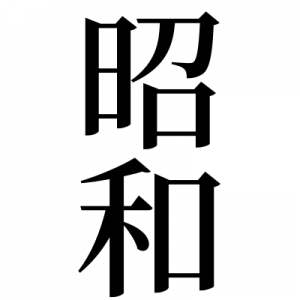This post introduces classic “dajare”, i.e. Japanese puns that you can use to give your Japanese friends a barrel of laughs; or cringes. The dajares are selected by me (Takashi) in the eyes of a native speaker (some of them are not very famous).
Table of Contents
布団が吹っ飛んだ
Yomi: futon ga futton da
Meaning: “Futon was blown away”
This is probably the most famous dajare among all generations and almost all Japanese people should know it.
アルミ缶の上にあるミカン
Yomi: arumikan no ue ni aru mikan
Meaning: “A mandarin orange that is on the aluminium can”
This one is also very famous and well done.
マスカラつけてますから!
Yomi: masukara tsukete masu kara
Meaning: “Coz I’m wearing mascara!”
It’s not quite famous, but very concise and worth listing here, I believe.
イルカはいるか?
Yomi: iruka wa iru ka?
Meaning: “Is there a dolphin?”
This one is very simple and easy to understand even for beginners.
虫は無視しよう
Yomi: mushi wa mushi shiyou
Meaning: “Let’s ignore insects”
虫 (むし, “insect”) and 無視 (むし, “ignore”) are homophones, but they have different accents: し is accented in 虫 and む in 無視. Other dajares that make use of homophones include:
- 猿が去る (saru ga saru; “A monkey leaves”)
- カエルが帰る (kaeru ga kaeru; “A frog goes home”)
- スキーが好き (sukī ga suki; “I like skiing”)
イクラはいくら?
Yomi: ikura wa ikura?
Meaning: “How much is salmon roe?
イクラ (salmon roe) is one of the most popular ingredients for sushi and onigiri in Japan. Another variation is イクラはいくら買う? (ikura wa ikura kau), meaning “How much salmon roe do you buy?”
ニューヨークで入浴
Yomi: nūyōku de nyuuyoku
Meaning: “Take a bath in New York”
This one is rather a classic dajare.
Incidentally, フロリダ (from “Florida”) is a Japanese slang term which abbreviates the phrase “風呂(ふろ)に入(はい)るから離脱(りだつ)する”, meaning “I’ve gotta go because I’m taking a bath” (used in a text chat). Note, however, that it’s probably getting outdated, and even when it was popular, it was predominantly used among female teenagers.
タイに行きたい
Yomi: tai ni ikitai
Meaning: I want to go to Thailand
Instead of タイ (Thailand), you can also use 鯛(たい, “red seabream”) and make a pun with it, like 鯛が食べたい (tai ga tabetai, “I want to eat red seabream”). Red seabream is one of the most popular fishes in Japan, by the way.
このお菓子、おかしい
Yomi: kono okashi, okashii
Meaning: “This snack is strange”
おかしい means “strange/something is wrong/weird/funny”.
虎と馬に追いかけられて、トラウマになった
Yomi: tora to uma ni oikake rarete, torauma ni natta
Meaning: “I was chased by tigers and horses, and that became a trauma”
Such a tra-umatic experience, innit?
この漢字、いい感じ
Yomi: kono kanji, ii kanji
Meaning: “This kanji feels/looks good”
Incidentally, いい感じの人 means someone that you find attractive and are having a good time with recently (before you actually become their gf/bf);
cf. See 50 Japanese Words and Idioms about Love & Relationship
あっさりしたスープだね。アサリだけに
Yomi: “assari shita sūpu da ne. asari dake ni.”
Meaning: This soup tastes “assari” (light); because it’s “asari” (clam) soup, you know?
As in this example, だけに is used to make a dajare (sometimes spontaneously). See the following post for details.
How to Make Puns Using だけに (dake ni)
ダジャレを言ったのは誰じゃ?
Yomi: dajare o itta no wa dare ja
Meaning: “Who said dajare?”
You may use this dajare to conclude your series of dajare.




Leave a Reply